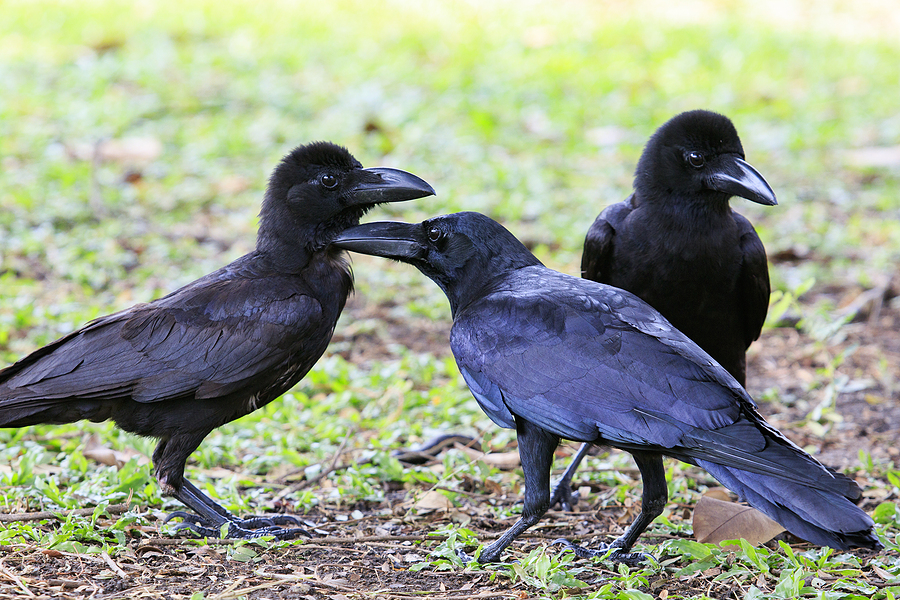Unwanted avian visitors can often transform our peaceful abodes into chaotic environments. From pigeons nesting in our attics to starlings taking over our gardens, nuisance birds can pose a significant problem to homeowners. But how can we effectively control and remove these feathered intruders without causing them harm?
In this blog post, we will discuss safe and humane methods for bird control, helping you reclaim your home and garden while ensuring the well-being of our winged companions. So, if you’re tired of the early morning chorus or the constant cleaning up after these unwelcome guests, read on to learn how to send these birds flying back to their natural homes.

The Problems Caused By Nuisance Birds
Nuisance birds can cause a variety of problems to homeowners, from the soiling of outdoor surfaces and health risks caused by bacteria-ridden droppings to noise disturbances that can be particularly disruptive for those living in urban areas. Moreover, they can wreak havoc on our gardens, destroying flowers and plants through their scavenging activities.
These birds can also carry various diseases, which can be passed on to humans. For instance, pigeons and starlings are known carriers of histoplasmosis, a fungal infection that is contracted by inhaling the spores present in their droppings. Furthermore, they may also spread parasites such as mites and fleas into our homes.
Identifying Problematic Birds
The first step in dealing with nuisance birds is to identify the species that are causing the problem. Common culprits include pigeons, gulls, starlings, and crows. In some cases, certain species of woodpecker can also cause problems. Knowing which type of bird is causing the issue will help you choose an appropriate solution. For example, pigeon-proofing your home will be ineffective if the birds causing the problem are starlings or gulls.
Bird Control Solutions
Once you have identified which species of bird is causing problems in or around your property, you can begin to look into appropriate solutions for bird control. The most important thing to remember is that all methods should be safe, humane, and respectful of the birds’ welfare.
For example, if pigeons are roosting in your attic or balcony, installing a physical barrier like netting or spikes can deter them from returning. Similarly, setting up audio deterrents such as ultrasonic sound machines or bird distress calls can also help to keep pigeons away. As a last resort, you can also make use of bird repellents like chili pepper or other natural ingredients.
For species like starlings or crows, removing food sources such as uncovered garbage bins or seed-bearing plants can be an effective way to keep them from returning. If birds are nesting in trees on your property, pruning the branches may discourage them from staying. It is also important to note that any bird nests found should be left undisturbed, as removing them may harm the birds or cause them distress.
Bird Removal Services
In some cases, homeowners may find it difficult to effectively and humanely remove nuisance birds on their own. In these instances, it can be beneficial to call in the help of expert bird removal services. These professionals can assess the issue and provide safe, humane solutions tailored to your specific needs.
When searching for a bird removal service provider, it is important to make sure they are experienced and knowledgeable about best practices in bird control. They should be committed to finding lasting solutions that don’t just move the birds from one place to another, but effectively discourage them from returning to your property.
The Takeaway
Nuisance birds can be a source of frustration for homeowners, but there are a number of safe and humane methods for dealing with these feathered intruders. If you do find yourself unable to solve the problem on your own, don’t hesitate to reach out to a professional bird removal service. With the right solutions, you can reclaim your home and garden while ensuring the welfare of your feathered friends.
Are you tired of dealing with the nuisance bird activity on your property? Are pigeons and crows causing your landscape all sorts of grief? Contact Smoky Wildlife Control at 615-610-0962 for TWRA licensed and insured bird removal and control in Nashville, Tennessee and beyond. We also work with many other types of wildlife and serve both residential and commercial clients.
Related Posts:
How to Get Rid of Red Winged Blackbirds
How to Get Rid of Woodpeckers in Nashville
How to Identify and Remove Problematic Bird Species in Tennessee
